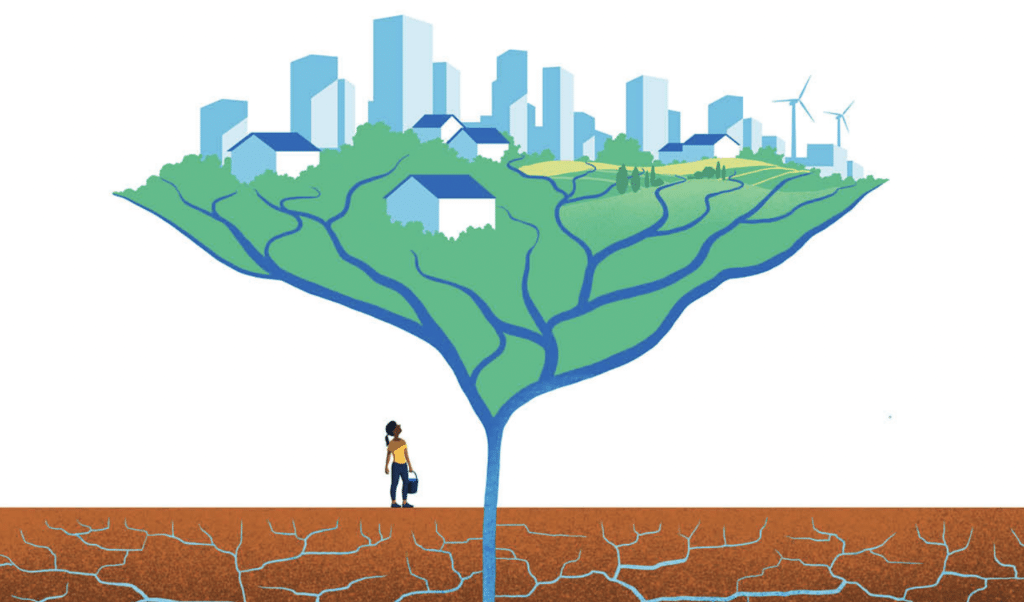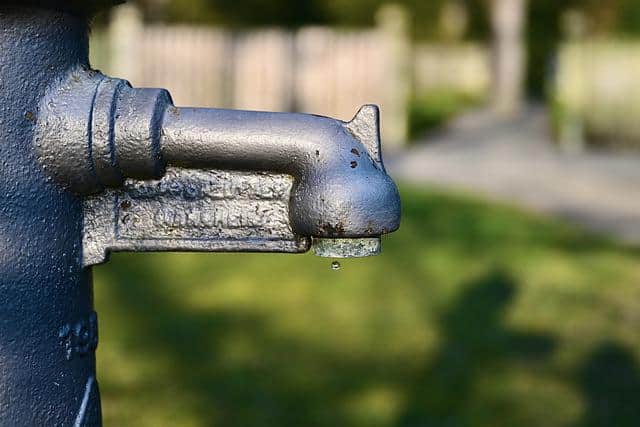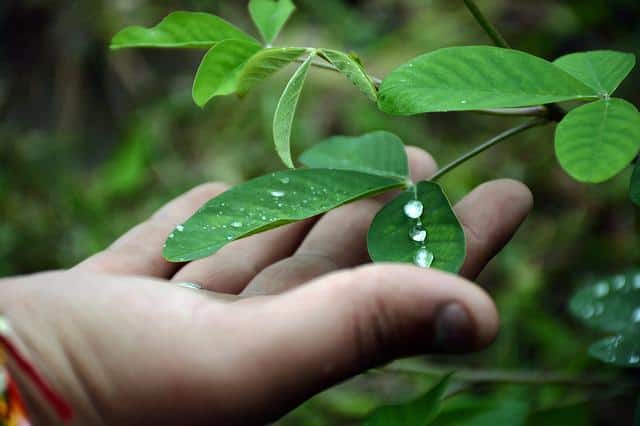Introduction – the Value of Water
This is an excellent question. Objectively, its quite hard to pin down exactly why we need to conserve water. The year 2022 saw record droughts in Europe, China, the Western United States, among other places. The impact of the drought was loss of hydroelectric power, loss of coolant for nuclear plants, and loss of farmland irrigating and municipal tap water. But would conserving water have helped in any of these situations? Perhaps when water is scarce then conservation becomes important. What if there’s no scarcity, is it still necessary to conserve water?

Water is important because it is a natural resource necessary for life. Water is essential for various purposes such as drinking, cooking, bathing, and washing. Moreover, water is also needed for agricultural and industrial purposes. One of the main ways to conserve water is by using less water. Water is probably the most important substance on Earth. Not only is it essential for human life, but it is also necessary for the proper functioning of non-human ecosystems. Water plays a role in the hydrologic cycle, which is the continuous movement of water on, above, and below the surface of the Earth.
Value of Water is Left Ambiguous in Our Pricing System
The United Nations in 2021 issued a report on water in which they note that the “value of water” unfortunately has no fixed universal meaning. Without a good way to value water, hampers our ability to allocate it correctly as one might do in a free market for goods that have prices that respond to supply and demand.
Whilst the term ‘value’ and the process of ‘valuation’ are well defined, there are several different views and perspectives of what ‘value’ specifically means to various user groups and stakeholders. There are also different methods for calculating value and different metrics to express it.
United Nations Water Report 2021
Water certainly has a price. However that price isn’t tied to value, rather it’s more tied to an accounting of service, like provision, infrastructure. It’s possible that because of its essentiality we’ve shied away from assigning a value to it. For example, there are “water rights” which implies that we can’t give it a price and instead enshrine our access in terms of “rights”.
Water is often taken for granted in developed nations like the United States. We have clean water to drink, cook with, and bathe in. We have an abundant supply of water for industry and agriculture. It is easy to forget that water is a finite resource. There is a limited amount of freshwater on Earth, and we must use it wisely.
Nevertheless we should press on and consider reasons why its important to conserve water even if we have trouble pinning down the value due to the lack of a good pricing mechanism.
Despite the challenges of pricing and conserving water, it’s not to say that there aren’t bright spots around the world showing that it is possible to achieve water conservation.
Why Do We Need To Conserve Water – Useable Fresh Water Is A Limited Resource
You might be thinking, why is water conservation necessary? Since 70% of our planet is water? There are many reasons why we need to conserve water. For one, water is a limited resource. Although our planet is mostly water, only a small fraction of it is fresh and accessible for use. With the world’s population continuing to grow, the water demand is also increasing. If we don’t start conserving now, we could run out of usable water in the future.

Useable Water Is Essential To Life and Daily Living
In addition to being a limited resource, water is also essential for life. Every living thing needs water to survive, and humans can only go a few days without it. Water is used for drinking, cooking, cleaning, and irrigation. It is also used in manufacturing and energy production. Conserving water helps to ensure that there will be enough for everyone’s needs.
American Water Works Association’s (AWWA) 2023 State of the Water Industry Report
Every year the AWWA puts out a report about water. The 2023 report came out in June. In it, the top three challenges facing the water industry were listed as these:
- Aging Infrastructure: Water utilities are grappling with old and often deteriorating infrastructure. including pipelines, water treatment facilities, and storage facilities, many of which have surpassed their intended lifespan.
- Long-Term Water Supply: Climate change, population growth, and changing water use patterns are creating concerns about the long-term availability and sustainability of water supplies.
- Compliance with Pollution Regulations: Managing contaminants such as Per- and Polyfluoroalkyl Substances (PFAS) and other point source pollution remain top compliance challenges for the water industry.
Water Use Is Tied to Energy Use
By conserving water, you’re also saving energy. There are two ways water use is tied to energy. First, heating water uses a lot of energy, so less hot water can help reduce your carbon footprint. Second, conserving water also reduces the amount of water that needs to be treated at water treatment plants. This saves energy and money and helps to protect our environment.
So why do we need to conserve water? There are many good reasons! By conserving water, we can protect this vital resource for future generations while benefiting people and the planet today.
How Do Conserve Water Consumption?
Every day, we use water for a variety of purposes. We drink it, cook with it, clean with it, and even use it to generate power. However, fresh water is a limited resource, and it’s important to conserve it whenever possible. Here are a few ways you can save water:
Turn Off The Tap:
This one is simple but important. Turn the faucet off while brushing your teeth or shaving, and you can save several gallons of water daily. This is the most basic way to conserve water, but it can make a big difference.
Install Low-Flow Fixtures:
Conventional toilets use about 3-5 gallons of water per flush, but low-flow toilets only use 1.6 gallons. That’s a savings of almost 70%! Low-flow showerheads work similarly, using less water without sacrificing water pressure.
Fix Leaks:
Fix any leaks in your home. A small drip from a leaky faucet can waste a lot of water over time. Check all the fixtures in your home and fix any leaks. Take the time to fix any leaks in your plumbing, and you’ll save water and money. This change can have a big impact over time.
Invest In Water-Efficient Appliances:
When it’s time to replace an old appliance, look for a water-efficient model. Newer dishwashers and washing machines use much less water than their older counterparts. Plants also need water to survive. Group plants together based on their water needs, and you can reduce your watering time. Drip irrigation systems are another great way to water your plants efficiently.
Water Your Plants During The Cooler Hours Of The Day:
During hot summer days, evaporation can cause a lot of water to be lost before it even has a chance to reach the roots of your plants. Water your garden in the early morning or evening, when it’s cooler, and there is less evaporation.

Collect Rainwater:
If you have a garden, you can collect rainwater in a barrel or cistern to water your plants. This is a great way to save water, and it’s free! Many neighborhood hardware stores sell rain barrels. This is very important because it helps the environment by not wasting water that you could use for other things such as watering plants.
Use Grey-water:
Grey-water is wastewater from sources like your shower, sink, and washing machine. It doesn’t contain harmful chemicals like sewage, so you can safely reuse it for things like watering your plants or flushing your toilet. Reusing grey-water can save you up to 50% on your indoor water use!
Teach Your Children:
One of the best things you can do to conserve water is to teach your children about the importance of this precious resource. Show them how to turn off the faucet while brushing their teeth, and lead by example with your water-saving habits. By instilling a conservation ethic in the next generation, we can ensure that our planet’s water resources are protected for years.
By following these simple tips, you can greatly impact your water usage. Conserving water not only saves this valuable resource – it also saves money on your utility bills. So start saving today!
Wrapping Up
In conclusion, water is a valuable resource that we need to conserve. There are many ways to save water, and every little bit counts. By making even small changes in our daily habits, we can make a big difference to the planet. So let’s all do our part to protect this vital resource!
